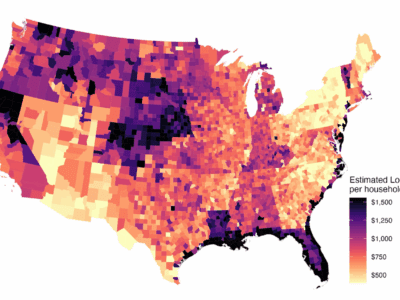How Trump’s War on Research Hurts the US Economy
The economic evidence confirms the huge benefits of government support for research.
The Trump Administration has gone to war against science. Trump’s budget calls for cutting federal research funding almost in half. Billions of dollars in research grants to universities have been cancelled. The Administration is also gutting research across the government, from the Environmental Protection Agency to the National Institutes of Health. But the Administration has given little thought about how this will harm competitiveness in a high-tech world.
Rigorous economic research confirms that government support for innovation pays off for society as a whole. In one study, researchers examined the impacts of grant impacts from a major Department of Energy research program, DOE had spent a total of $40 billion to support early-stage innovation by small businesses or about $200 million per year. The researchers found that three additional patents by other inventors resulted from every new patent incentivized by the program. Or to put it another way, the government’s investment in research has a multiplied effect on innovation.
In a second recent study, researchers examined the long-run effect of World War II R&D hubs on regional economic development. During the war, the government launched the Office of Scientific Research and Development to fund research across the country. The researchers found that this wartime spending kicked off long-term development of technology centers that were still going strong decades later. They found evidence that “these changes were accompanied by growth in local industrial employment and firm creation in related high-tech industries.” The result was an uptick in competitiveness and economic performance.
Other recent research supports those finding. A paper by Larry Summers estimates that a dollar in investment in R&D creates about a five dollar return, not counting investments in improved health. Most recently, a July 2025 paper in a top economics journal found that a change that “raises the relative intensity of government R&D leads to large and persistent responses of investment, productivity, innovation, and output.”
Some conservatives argue that government funding is unnecessary because innovation can be left to the private sector, which can monetize those benefits through the intellectual property system. The studies discussed above confirm the view of economists such as Nobel Prize winner Joseph Siglitz that the patent system has limits as an incentive system. In particular, the IP system doesn’t reward firms for the public benefits of innovations. This makes the private sector particularly unlikely to finance basic research that has broad implications for an entire field. But as the two studies indicate, the private sector underproduces applied research as well because the research has public benefits that they don’t get paid for.
The case for government supported research is particularly strong in areas like the environment and public health, where the benefits of the research will be broadly distributed across society, and in emerging energy technologies where countries can gain an edge. But government supported research also underpins economic competitiveness and growth. Some Presidents would care about that.







Reader Comments